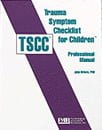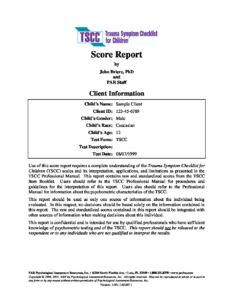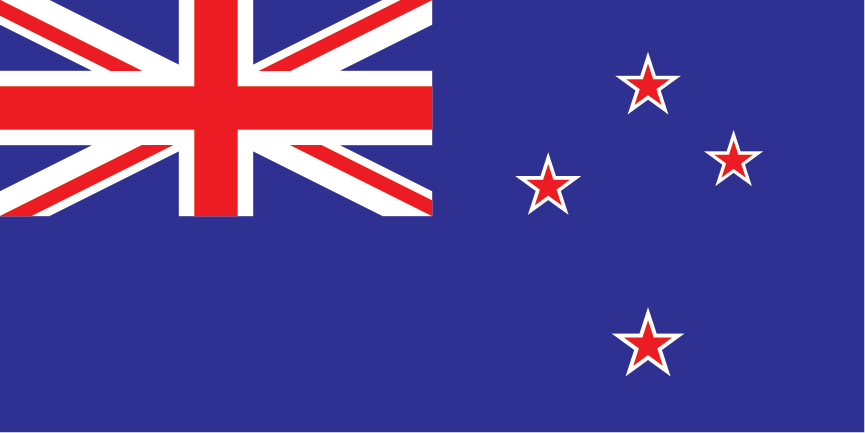
Trauma Symptom Checklist for Children tscc
For: Evaluate acute and chronic post-traumatic symptomatology in ages 8-16 years
Reading Level: Child - Adolescent
Format: Paper and pencil; Online administration and scoring via PARiConnect; or PC Based Software
Length: 15-20 minutes
Scoring: Hand Scored; PC Based Software; or online via PARiConnect
Other
Click to browse products
Online Forms, Reports, Kits & e-Manuals
All online resources including Forms, Reports, i-Admins, Kits and e-Manuals.
Printed Forms & Handscoring Materials
Test forms, response booklets and scoring reference manuals.
Printed Kits
Click to browse products
TSCC e-Manual
TSCC-SF TSCC-SF:A online Score Report (each) min order 5
TSCC-SF TSCC-SF:A online i-Admin (each) min order 5
TSCC/TSCC-A online Score Report (each) min order 5
TSCC/TSCC-A online i-Admin (each) min order 5
TSCC Female Profile Forms (25)
TSCC Male Profile Forms (25)
TSCC Screening Form Hand-Scorable Answer Sheets (pkg/25)
TSCC Test Booklets (25)
TSCC-A Test Booklets (25)
TSCC Introductory Kit
TSCC-A Introductory Kit
Contact PAA today to set up your PARiConnect online account to utilise online administration, scoring and reporting.
Author
John Briere, PhD
Description
The TSCC is a self-report measure of post-traumatic stress and related psychological symptomatology in children ages 8-16 years who have experienced traumatic events (e.g., physical or sexual abuse, major loss, natural disaster, or witness violence).
The 54-item TSCC includes two validity scales (Under-response and Hyper-response), six clinical scales (Anxiety, Depression, Anger, Post-traumatic Stress, Dissociation, and Sexual Concerns), and eight critical items. The alternate 44-item version (TSCC-A) is identical to the TSCC, except it makes no reference to sexual issues (and has no Sexual Concerns scale) and includes seven Critical Items.
This instrument is suitable for individual or group administration. Item responses on a 4-point scale are entered on the top page of the carbonless test booklet. Item responses are automatically transferred to the scoring page underneath, allowing for easy hand scoring. Profile Forms allow for conversion of raw scores to age- and gender-appropriate T scores and graphing the results.
The TSCC scales are internally consistent (alpha coefficients for clinical scales range from .77-.89 in the standardisation sample) and exhibit reasonable convergent, discriminant, and predictive validity in normative and clinical samples. The TSCC was standardised on a group of over 3,000 inner-city, urban, and suburban children and adolescents from the general population. Data from trauma and child abuse centres are also provided.
The comprehensive Professional Manual provides information on test materials, administration, scoring, interpretation, psychometric characteristics, and normative data.
NB: To evaluate acute and chronic post-traumatic symptomatology in individuals ages 18 years and older, use the Trauma Symptom Inventory (TSI), and for children ages 3 to 12 years, use the Trauma Symptom Checklist for Young Children (TSCYC).
Now available! The TSCC Screening Form allows you to quickly screen for posttraumatic stress and related psychological symptomatology in children ages 8-17 years who have experienced traumatic events, such as physical or sexual abuse, major loss, or natural disasters, or who have been a witness to violence.
Features and benefits
Carbonless form takes just 5 minutes to administer and score.
Quickly indicates whether a child or youth is at risk for clinically significant psychological disturbance.
Does not require an advanced degree or training to administer and score.
Can be administered individually or in a group setting.
Supports the trauma informed care approach to treatment.
Test structure
Derived from the TSCC. Selected items were best at predicting overall trauma and sexual-related symptomatology.
Includes 12 items and two subscales—General Trauma and Sexual Concerns—that are scored separately.
Features separate cutoff scores (derived from TSCC normative data) for boys and girls ages 8-12 years and ages 13-17 years.
Technical information
Normative data (N = 3,955) features self-reports of children ages 8-17 years from three nonclinical samples.
Internal consistency coefficients are in the good-to-excellent range.
Test–retest reliability was r = .80 (p < .001) for each scale.
NB: Prices are in Australian dollars inclusive of GST. NZ customers need to log in to view ex-GST prices.
 NZ
NZ





